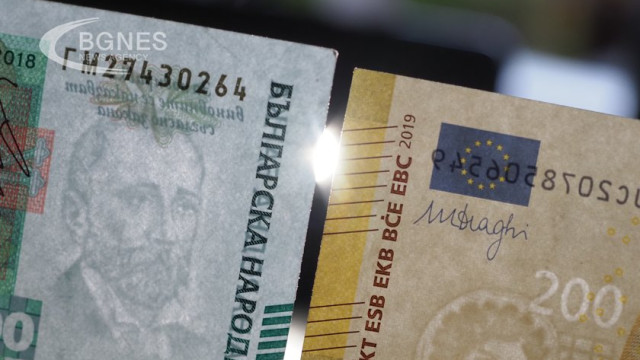The Ministry of Finance publishes for public discussion the draft Law on the introduction of the euro in the Republic of Bulgaria.
The purpose of the document is to ensure the smooth introduction of the euro in the Republic of Bulgaria and to increase transparency and awareness of the process of adopting the single European currency in the country. The deadline for receiving opinions is April 24, 2024.
The draft Law on the introduction of the euro in the Republic of Bulgaria was developed by a specially created for this purpose interdepartmental working group at the Ministry of Finance, in which the Bulgarian National Bank, all ministries and interested institutions and organizations, representatives of business and the academic community participate. The draft law has been agreed with the European Commission, which gave its positive opinion on it, while its agreement with the European Central Bank is pending.
The proposed project regulates the principles, rules and procedures for the introduction of the euro as the monetary unit of the Republic of Bulgaria. The date of our accession to the Eurozone and the exchange rate of the BGN to the Euro will be determined by the Council of the European Union with a unanimous decision of the Member States whose currency is the Euro and the Republic of Bulgaria. The commitment of the Bulgarian authorities for our country to join the eurozone with the current fixed exchange rate has been confirmed both in the National Plan for the introduction of the euro in the Republic of Bulgaria and in the Decision of the National Assembly of October 2022, with which the Bulgarian institutions were assigned to accelerate of the consultations and the continuation of the technical preparation for the adoption of the euro in the country.
The draft law regulates the methods of rounding after the revaluation of values of goods and services, bank accounts, debt securities, government securities, government and government-guaranteed loans, securities, remunerations, pensions, social benefits and benefits, etc.
The bill stipulates that on the date of the introduction of the euro in Bulgaria, all accounts - checking, deposit, savings and others in local banks will be converted into euros once, automatically and free of charge at the official exchange rate. From the day of the introduction of the euro, account holders will be able to withdraw from them only euros, regardless of whether the withdrawal will be made through an ATM/POS device or at the office of a bank, payment institution, etc. From the date of the introduction of the euro, it is envisaged that the payment of remuneration, benefits, monetary and social benefits, as well as pensions, will be made in euros.
The draft law stipulates that the Bulgarian National Bank, from the day of the introduction of the euro, will exchange banknotes and coins from leva into euros for free, in an unlimited quantity and without a time limit, at the official exchange rate. According to the project, during the first 6 months after the introduction of the euro, banknotes and coins will be able to be exchanged free of charge from levs to euros in credit institutions (banks), as well as in some branches of "Bulgarian Post" EAD.
It is foreseen that the new interest rate on loan contracts with a variable interest rate cannot be higher than the amount of the interest rate on them before the date of introduction of the euro. In the case of a loan agreement with a fixed interest rate on the date of introduction of the euro, the interest rate will remain as it was agreed before the date of introduction of the euro.
The prices of goods and services will be indicated simultaneously in BGN and EUR from the first month after the Council Decision on the adoption of the euro until 12 months after the date of introduction of the euro in the Republic of Bulgaria.
The bill proposes that both prices be written, legibly, unambiguously and easily understood, with the same font size, in a way that does not mislead consumers. They must be placed together and will be accompanied by a distinctive sign or abbreviation, allowing them to be easily recognized. The final amount to be paid by the user must also be presented in both currencies in the issued fiscal/system voucher.
During one month from the actual entry of Bulgaria into the Eurozone, there will be a period of double circulation of the leva and the euro, in which people will be able to pay in both currencies. During this period, merchants will be required to return change in Euro unless they have sufficient current availability. After the expiration of this period, the lev will cease to be legal tender. /BGNES







